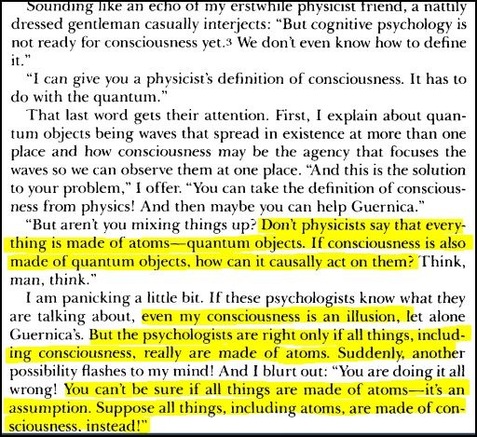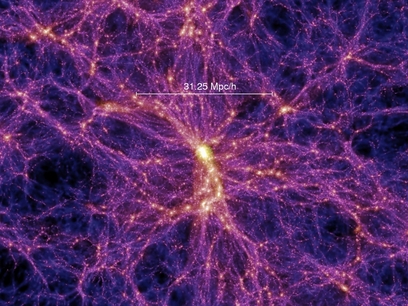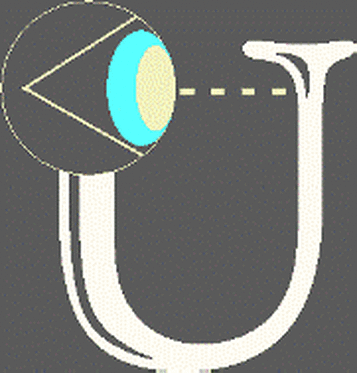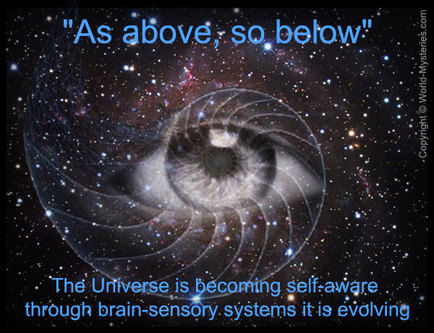The Self-Aware Universe
|
The Concept of Objective Reality

Extract from 'Self-Aware Universe' by Amit Goswami The All is Mind
Consciousness, not matter, is the ground of all existence, declares University of Oregon physicist Amit Goswami, echoing the mystic sages of his native India. He holds that the universe is self-aware, and that consciousness creates the physical world. Calling this theory “monistic idealism,” he claims it is not only “the basis of all religions worldwide” but also the correct philosophy for modern science. Once people give up the assumption that there is an objective reality independent of consciousness, the paradoxes of quantum physics are explainable. Bernard Haisch, who is a well respected and published astrophysicist; copiously quotes from sources as wide and varied as The Upanishads, The Bhagavad Gita, The Bible, Einstein, Schrodinger, James Jeans, Aldous Huxley, Freeman Dyson and the list goes on; with the premise that all these sources are explaining or at least expounding upon the same thing, that is: Consciousness creates matter, not - repeat, not – the other way around. Space-time, the observed universe, and the brain-sensory system are all manifested simultaneously. This does not occur “until” the wavefunction for a sufficiently complex brain-sensory system is present so that an aware, sentient being can be manifested simultaneously with the observation. Actually, this process is occurring constantly: Space-time, observing objects and observed objects are constantly and simultaneously being materialized… “As above, so below” [ The Emerald Tablet - Hermes Trismegistus] ‘That which is above is the same as that which is below” … Macrocosmos is the same as microcosmos. The significance of this phrase is that it is believed to hold the key to all mysteries. All systems of magic are claimed to function by this formula. “The ALL is MIND; The Universe is Mental.” [ The Kybalion ] ‘For in Him we live and move and have our being.’ As some of your own poets have said, ‘We are His offspring.’ [ The Bible, Acts 17:28 ] “The Universe begins to look more like a great thought than like a great machine.” [ Sir James Jeans, astrophysicist ] “We are not human beings having a spiritual experience. We are spiritual beings having a human experience.” [ Teihard de Chardin ] We are God having a human experience. [ Bernard Haisch ] The seeker is he who is in search of himself. Give up all questions except one: ‘Who am I?’ After all, the only fact you are sure of is that you are. The ‘I am’ is certain. The ‘I am this’ is not. Struggle to find out what you are in reality. To know what you are, you must first investigate and know what you are not. Discover all that you are not — body, feelings, thoughts, time, space, this or that — nothing, concrete or abstract, which you perceive can be you. The very act of perceiving shows that you are not what you perceive. The clearer you understand that on the level of mind you can be described in negative terms only, the quicker will you come to the end of your search and realise that you are the limitless being. [ Nisargadatta Maharaj ] “Why are you unhappy? Because 99.9 per cent of everything you think, and of everything you do, is for “yourself “- and there isn’t one. [ Terence Gray ] When you renounce your attachment, there is nothing to shake you. It is the feeling of possession, of clinging, that disturbs the mind. [ Buddha's teaching paraphrased by Satchidananda ] Advaita is a sanskrit word that literally means “not two”. Synonyms of Advaita are non-duality (nonduality, non duality). Advaita is not a philosophy or a religion. Non-duality is an experience in which there is no separation between subject and object; a “me” and the rest of the universe; a “me” and God. It is the experience of consciousness, our true nature, which reveals itself as absolute happiness, love and beauty. Consciousness is defined as that - whatever 'that' is - which is aware of these very words right here, right now. [ Francis Lucille ] I believe that consciousness and its contents are all that exists. Space-time, matter and fields never were the fundamental denizens of the universe but have always been, from their beginning, among the humbler contents of consciousness, dependent on it for their very being. The world of our daily experience—the world of tables, chairs, stars and people, with their attendant shapes, smells, feels and sounds—is a species-specific user interface to a realm far more complex, a realm whose essential character is conscious. It is unlikely that the contents of our interface in any way resemble that realm. Indeed the usefulness of an interface requires, in general, that they do not. For the point of an interface, such as the windows interface on a computer, is simplification and ease of use. We click icons because this is quicker and less prone to error than editing megabytes of software or toggling voltages in circuits. Evolutionary pressures dictate that our species-specific interface, this world of our daily experience, should itself be a radical simplification, selected not for the exhaustive depiction of truth but for the mutable pragmatics of survival. If this is right, if consciousness is fundamental, then we should not be surprised that, despite centuries of effort by the most brilliant of minds, there is as yet no physicalist theory of consciousness, no theory that explains how mindless matter or energy or fields could be, or cause, conscious experience. There are, of course, many proposals for where to find such a theory—perhaps in information, complexity, neurobiology, neural darwinism, discriminative mechanisms, quantum effects, or functional organization. But no proposal remotely approaches the minimal standards for a scientific theory: quantitative precision and novel prediction. If matter is but one of the humbler products of consciousness, then we should expect that consciousness itself cannot be theoretically derived from matter. [ DONALD HOFFMAN, Cognitive Scientist, UC, Irvine; Author, Visual Intelligence ] |


